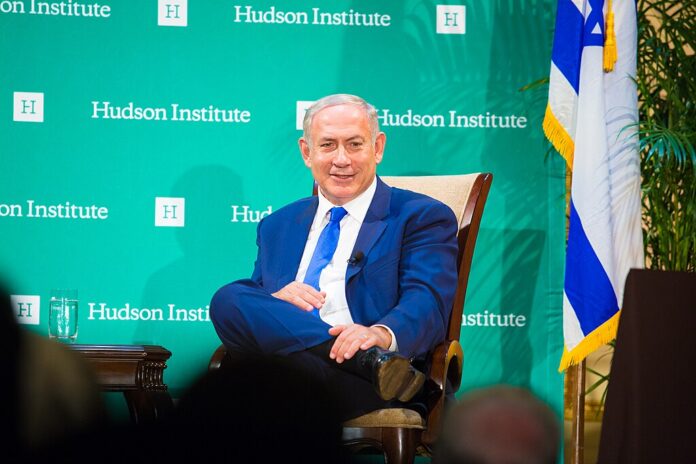Israeli Prime Minister Benjamin Netanyahu is criticized for the limited scope of recent airstrikes against Hezbollah, with calls from within his coalition for a more extensive military campaign
Israeli Prime Minister Benjamin Netanyahu is encountering intense political criticism following Sunday’s airstrikes against Hezbollah, with calls for a broader and more decisive offensive from within his own coalition. The limited nature of the airstrikes has sparked dissatisfaction, particularly from the far-right faction of Netanyahu’s government.
The recent airstrikes, which marked the most significant cross-border engagement since the 2006 war with Hezbollah, aimed to disrupt the group’s planned rocket and drone attacks on Israel. According to Israeli Defence Minister Yoav Gallant, the pre-emptive strikes succeeded in preventing Hezbollah from launching up to two-thirds of its intended rockets and shooting down nearly all incoming drones. Despite this, the strikes resulted in the deaths of three Hezbollah fighters and one Israeli sailor, while failing to address the broader issue of displaced residents in northern Israel.
Embed from Getty ImagesPolitical figures within Netanyahu’s coalition have expressed frustration with what they view as a cautious approach. Benny Gantz, a retired general and former minister, criticized the strikes as insufficient, arguing that they did not achieve strategic objectives nor significantly impact the northern front. Gantz emphasized the need for sustained military pressure to facilitate the return of displaced residents and restore Israeli sovereignty in the affected regions.
Far-right national security minister Itamar Ben-Gvir echoed similar sentiments, demanding a comprehensive campaign to eradicate the Hezbollah threat entirely. Ben-Gvir’s criticism was accompanied by ongoing tensions with Defence Minister Gallant, who has been vocal about the need to maintain the current status quo regarding the al-Aqsa mosque and Temple Mount in Jerusalem.
Ben-Gvir has pushed for changes to the policy on the Temple Mount, advocating for equal prayer rights for Jews and Muslims. His recent actions, including leading Jewish prayers at the site and calling for alterations to the established arrangements, have been met with sharp criticism from other coalition members and raised concerns about potential unrest among Palestinians and the wider Arab world.
Netanyahu’s office responded to the criticism by maintaining that there was no change in the status quo on the Temple Mount and emphasizing the importance of maintaining stability and security. The Prime Minister’s spokesperson reiterated the government’s commitment to addressing Hezbollah’s threats while cautioning against actions that could escalate tensions further.
The internal rifts within Netanyahu’s coalition, coupled with the ongoing security challenges, highlight the complex and volatile nature of Israeli politics and its impact on military strategy and policy decisions.
Analysis
Political: The backlash against Netanyahu’s handling of the Hezbollah conflict underscores significant political divisions within Israel’s coalition government. The criticism from figures like Benny Gantz and Itamar Ben-Gvir reflects broader debates about military strategy and the effectiveness of the current approach to dealing with Hezbollah. The far-right faction’s calls for a more aggressive stance reveal internal pressures on Netanyahu to adopt a stronger military posture. This political tension may influence future policy decisions and shape the dynamics of Netanyahu’s leadership.
Social: The limited airstrikes and the ongoing displacement of residents from northern Israel highlight the social impact of the conflict. The dissatisfaction among displaced communities, who feel neglected in favour of central Israel’s defence, reflects broader societal concerns about the government’s response to the crisis. The tension between maintaining security and addressing the humanitarian needs of affected populations reveals the complexities of balancing military objectives with social welfare.
Racial: The conflict with Hezbollah and the internal political debates are intertwined with broader issues of national identity and regional tensions. While the recent airstrikes were aimed at mitigating immediate threats, the underlying racial and ethnic dynamics in the region continue to influence policy and public sentiment. The differing views on how to handle Hezbollah and the Temple Mount reflect ongoing struggles with national identity and inter-community relations.
Gender: The impact of the conflict and government responses also have gendered dimensions. Women and children in displaced communities face unique challenges, including increased vulnerability and disrupted livelihoods. The government’s focus on military strategy may overlook these specific needs, necessitating targeted support to address the broader impact on families and communities.
Economic: The political and military developments surrounding Hezbollah and the Temple Mount have significant economic implications. The disruption caused by ongoing conflicts and the strain on public resources affect economic stability and growth. The cost of military operations, coupled with the need for humanitarian aid and support for displaced individuals, underscores the economic burden of protracted conflict and the importance of strategic planning to mitigate its impact.
